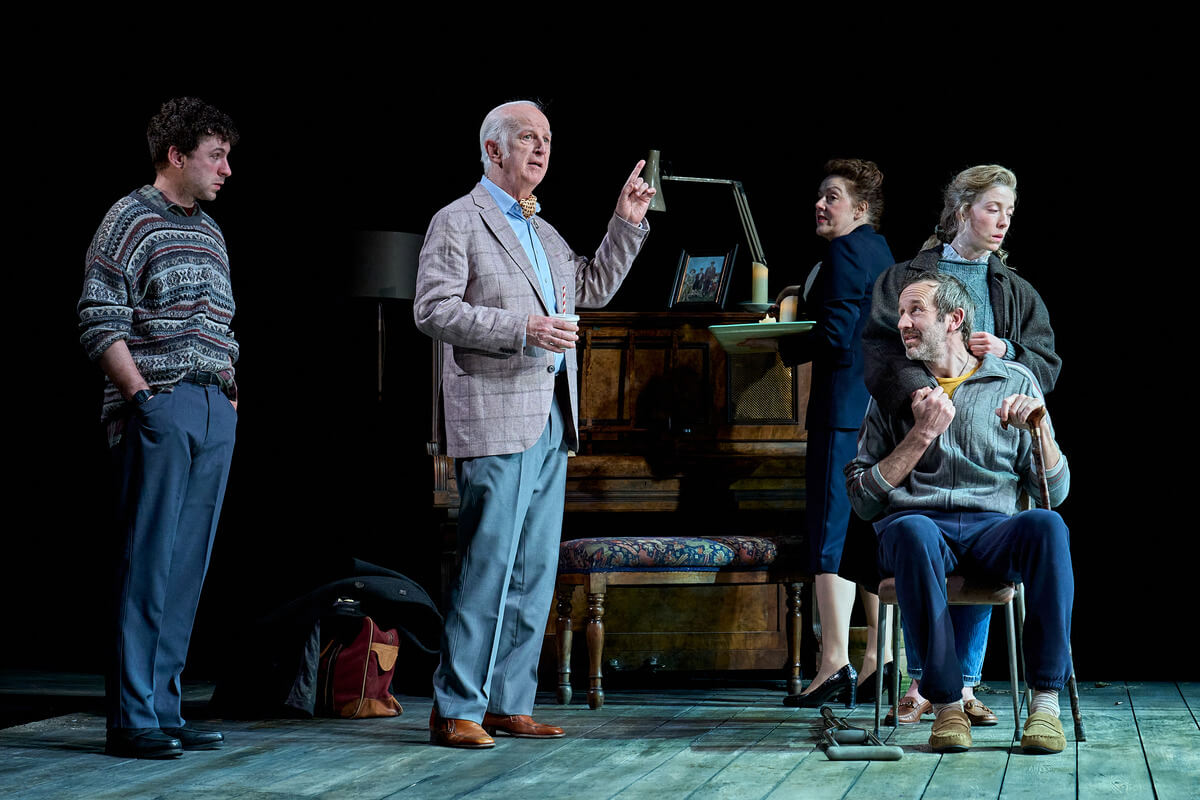Although the central character of George acts as the hub and driver of the plot about a middle-aged man who leaves his wife and grown-up daughter for a woman nearer the latter’s age, the strength of the piece is found in the manoeuvring of the three women as they adjust to their new orbits around him.
George’s wife Honour (the ever earnest Imogen Stubbs), has forsaken her own stellar literary career to become his wife, bear his child, critique his literary output and share 32 years of marriage. Unfortunately, whilst coupledom has provided an assured familiarity for her, it has assumed an air of stupefying normality for him. Into this pudding mix of mid-life stodginess is poured the cerebral vitality of a young interviewer Claudia (Katie Brayben - fresh from her award winning turn as Carole King), who captivates George with her physical freshness and intellectual rapaciousness.
When George spontaneously decides to separate himself from the staid, middle-class trappings of normalcy, we are introduced to his daughter Sophie (Natalie Simpson), who demonstrates an astute, if naïve take on her father’s infidelity and more poignantly rails against her mother for having forsaken her own career and identity for a man. The stark and abject realism of this particular scene bites hard enough to elicit scoffs of knowing laughter from many women in the audience, but it is by no means the only one.
During this talking shop about relationships of a certain age, there are so many significant one-liners and insightful observations (particularly about the male proclivity to attempt recapture of his youth), that it becomes difficult to like George — even when he vocalises a genuinely enthusiastic determination to pursue a new life with his dazzlingly re-energising siren. Only when it is too late, does he realise that her passion for him is born of a damaged childhood, intellectualised and mistrustful understanding of love and a need to see someone else’s devastation at losing her.
Paul Robinson directs his accomplished foursome on Liz Cooke’s spartan, marble effect stage, which curves skyward to a bank of suspended lights. It is simple, effective and allows the audience to focus on the real star of the show - the dialogue.

 Henry Goodman leads a company of four in Park Theatre’s latest offering - Joanna Murray-Smith’s 1995 play HONOUR - which effectively demonstrates that a strongly written script always retains emotional currency.
Henry Goodman leads a company of four in Park Theatre’s latest offering - Joanna Murray-Smith’s 1995 play HONOUR - which effectively demonstrates that a strongly written script always retains emotional currency.


 Playwright and director Nina Raine is extraordinarily talented, almost everything she writes and/or stages seems to attract awards and acclaim like a magnet. Her last major piece CONSENT transferred from the National Theatre to the West End and was a searing, funny and poignant mating dance to rival anything by Strindberg, Chekhov or Ibsen.
Playwright and director Nina Raine is extraordinarily talented, almost everything she writes and/or stages seems to attract awards and acclaim like a magnet. Her last major piece CONSENT transferred from the National Theatre to the West End and was a searing, funny and poignant mating dance to rival anything by Strindberg, Chekhov or Ibsen.